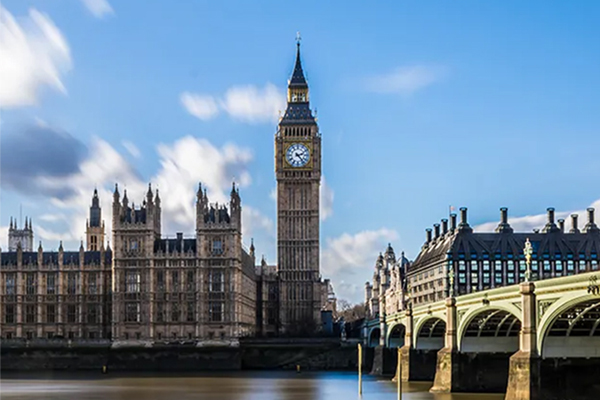Module Overview
The Negotiated Learning Project forms the final part of the Politics, Policy and Leadership MSc. It allows students to demonstrate their applied skills in a negotiated project for an organisation. It is an individual and independent project in which students can bring together all their learning on the programme to work on a policy issue or work based project, bringing together elements of the students learning from different parts of the MSc. The Negotiated Learning Project provides students the opportunity - as leaders or policy engaged participants in an organisation - to initiate, lead and drive change. The Project is undertaken in an area chosen by the student and is supervised by a member of the School. Students will normally undertake a project based on an agreed policy problem that forms part of their role and agree the project title and support arrangements with their employer and tutor. By undertaking the project students will be demonstrating their ability to research, and critically analyse and integrate complex information as well as demonstrating the core skills and behaviours necessary in the world of contemporary leadership and policy formulation. The setting can be in a policy orientated organisation, a voluntary sector body, governmental or non-governmental organisation or any other work place by negotiation with the module convenor.
In certain circumstances to be determined by the module convenor, students may undertake an alternative to the work based negotiated learning project. In negotiation with the allocated supervisor this may a reflective exercise based on action research - or other appropriate research methods - to evaluate and analyse leadership and/or public policy from outside an organisation. In such circumstances it would be expected that primary research is carried out in evaluating and a policy and/or leadership issue. Such an alternative approach would be agreed with the tutor in advance.
Module Overview
This module focuses on the structural parameters and manifestations of political leadership by political ‘chief executives’ (heads of government, party leaders and heads of state). The course is designed to introduce students to some of the many different theoretical and conceptual approaches that have guided empirical investigations into and assessments of political leadership in Britain and beyond.
This module equips students with the necessary tools for studying leaders and leadership in different settings. Students will have the opportunity to apply theories and concepts of political leadership to case studies of presidents, prime ministers and party leaders and apply comparative methods to analyse leaders (such as Blair and Cameron, Hawke and Howard in Australia, Merkel and Macron).
Based on a thematic approach students will consider a range of approaches to political leadership including: personality and charisma, theory from Machiavelli onwards, executive leadership, court leadership, rhetorical, party leadership and ‘bad’/toxic leadership.
Module Overview
As the first subject-specific core module on the MA Politics, Politics and Public Policy provides an overview of public policy-making across different institutional arenas and geographical contexts. It aims to familiarise students with the stages of the policy-making process, ranging from the ‘discovery’ of policy problems, to the setting of political agendas and the implementation of policy solutions.
It considers cases and examples that illustrate real-world dilemmas of public policy-making and draws attention to different understanding of what public policy can achieve. New ideas about how to obtain governing outcomes—through nudges or ‘meta-governing’, for example—will be explored with an interest in their potentials and limitations.
Module Overview
In this module, we explore different ways of understanding a salient but often ill-understood political phenomenon: public and political leadership. Students will engage with those who have held or currently hold leadership positions or have supported those in leadership positions. Topics will include a practical exploration of an aspect of public leadership, followed by a guest speaker to discuss the practical application.
Module Overview
This module introduces students to research methods in social and political sciences, with particular emphasis on qualitative approaches and survey design. It provides a crucial foundation for all students to understand debates around research methods and methodologies. Students gain familiarity with qualitative research strategies and survey design methods, and develop the ability to critically evaluate the strengths and weaknesses of applying these methodologies to different research projects. The module prepares students for independent studies and equips them with transferable qualitative and survey research skills applicable across disciplines.
Module Overview
This module introduces students to quantitative data analysis in social and political sciences. It provides a crucial foundation for understanding the principles and practice of quantitative data analysis, with an emphasis on practical competence with statistical software and the interpretation of quantitative findings. Students develop the ability to critically evaluate the strengths and weaknesses of different analytical approaches and to work confidently with quantitative data. The module prepares students for independent studies and equips them with transferable quantitative data analysis skills applicable across social science research.
Module Overview
The module will focus on the conceptual challenge of defining success and failure, and examine the range of factors which various studies have identified as contributing to policy success or failure - including structural, process, programmatic and behavioural factors. Through a series of case study workshops students will be given the opportunity to apply this conceptual literature to a number of real-world examples.
Module Overview
This module provide an in-depth understanding of the role of legislatures in political systems, and how the form, structure, activities and impacts of legislatures varies across a range of states. It will focus on the broad differences in the role and impact of legislatures in parliamentary and presidential systems, and through a series of case studies examine the operation of legislatures in a number of states such as the United Kingdom, the USA, Germany, France, China and Russia, as well as the European Parliament and the devolved assemblies within the UK.
Module Overview
This module examines the concepts that shape debates in (and are shaped by) global health, including global health governance and global health diplomacy. It then critically assesses programmes and strategies designed to address global health challenges such as pandemics, infectious and non-communicable diseases, reproductive health, biosecurity and inequalities of health.
Module Overview
This module aims to provide the opportunity to develop an in-depth understanding of some central concepts and theoretical debates on gender and sexuality including feminist theory and masculinities. These can be examined in greater depth in the context of key issues relating to power and economy in contemporary global politics.
These theories can then be applied to a range of case studies/issues. These case studies may change to reflect contemporary issues and academic developments but sample topics include decision-making processes in national and international political systems, the construction of gender and sexual identities in a globalised world and militarised masculinities.
Module Overview
What has prompted the “global religious resurgence” in recent decades? What is the connection between globalization and religious nationalism? Are we witnessing the emergence of a “clash of civilizations”? These are just some of the big questions that will be explored in this module. This course offers an interdisciplinary investigation of global politics and religion, drawing not only on Politics and International Relations, but also on Sociology, Theology, History, and Anthropology. It seeks to get beyond secular, Western conceptions of religion and to think instead about religion and its relationship to politics from a more “global” perspective.
Students will be introduced to a range of issues and debates relating to global politics and religion. and, by the end of the course, students will not only be familiar with those issues and debates, but will also be able to think critically about them and offer well-articulated interventions of their own.
Module Overview
This module aims to examine the background to globalisation and its relationship to the emerging trends towards regional governance and integration. The module seeks to draw out the implications of these trends for the nation state and its various corporate and policy actors.
The current globalisation trend has far-reaching consequences. Its origins are economic and lie in the gradual movement towards economic interdependence and integration of markets which has been taking place during the second half of the twentieth century.
Globalisation also reflects the decline of US hegemony and the collapse of Soviet power. Globalisation poses a major legitimisation challenge to the nation-state and nation-state based political economies. This has been evident in a tendency in recent years for national governments to seek to ‘depoliticise’ social and economic policy decisions by reference to ‘global forces’. More pro-actively the challenge to the nation-state has given a new impetus to the development of regional political economies notably the EU.
Module Overview
This module explores the powers of the police in England and Wales and further afield. It looks at the ways in which the police forces are organised and the different national agencies that operate in the area (such as the Serious Fraud Office, and the Serious Organised Crime Agency). Students are then taken through the various stages of policing from stop and search to charge. The various procedures that can be used to obtain evidence, including questioning, search of premises, DNA analysis, are examined. The effect of terrorism threats on police powers is discussed. The module concludes with a consideration of the ways in which police powers can be challenged, including complaints, civil action and exclusion of evidence.
Module Overview
This module aims to provide an advanced level of understanding of issues related to the theoretical basis of contemporary political analysis. Politics, like other social sciences, is an essentially contested field, in which there is significant disagreement amongst researchers about how to analyse political institutions, ideas and behaviour.
The module deals with the use of theory and meta-theory in politics and international relations. It begins with an examination of the nature of explanation and understanding in the social sciences before examining a series of key theoretical and meta-theoretical debates within the discipline. Amongst the topics to be covered are the relationship between ontology and epistemology, structure, agency and power and the role of ideas in political analysis.
Module Overview
The module aims to develop the analytical skills and provide the opportunity to broaden students' knowledge by exposing them to the wide-ranging debates on the problems of transition from Communism focusing, for example, on the Soviet and post-Soviet systems.
Students have the opportunity to develop knowledge of not only of the academic literature on late Soviet and post-Soviet Russian politics but also to read several major works from the comparative literature on transitions in order to assess the relevance of generalisations in that body of scholarship to the Soviet and Russian transition. They are encouraged also to consider what contribution an understanding of the Soviet and Russian case has to make to political science more generally. The module analyses both the significant achievements and the major problems of transition from Communism to post- Communism in Russia.
More generally, it aims to provide students with the skills and knowledge to interpret current and future developments in Russia. Given the continuing importance of Russia in international relations, this may be of practical benefit to careers other than academia - among them politics, the civil service, international banking, and journalism.
Module Overview
The label ‘terrorism’ is applied erratically with little clear precision or exclusivity to its use and failing to clearly differentiate those labelled 'terrorists'. The long and contested histories of diverse political and ideological struggles in respect of securing the legitimacy of this label, and/or the resistance to it, are often made unclear by the cultural significance the label itself.
The aim of this module is to provide a critical understanding of these heated debates focusing on past and current management strategies, their relative strengths and weaknesses, the problems with conceptualisation and their various proponents from the worlds of academia/counter insurgency studies, political and criminal justice/military ‘experts’.
Module Overview
The term ‘American exceptionalism’ – or, more precisely, ‘US exceptionalism’ (since the United States does not represent all of America) – has gone viral in recent years. Previously only used by a small group of American Studies scholars and historians, the term was first propelled into public discourse by the Republican Party during the failed presidential campaigns of John McCain (2008) and Mitt Romney (2012). Since then it has become a ‘hegemonic’ concept.
This module aims to provide MA students with a highly advanced knowledge and critical understanding of US exceptionalism. The aim is to encourage students to think holistically and critically about the discourse of US exceptionalism so as to understand its roots in contemporary power relations and be able to challenge it.








